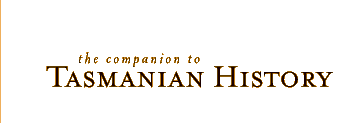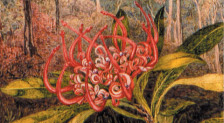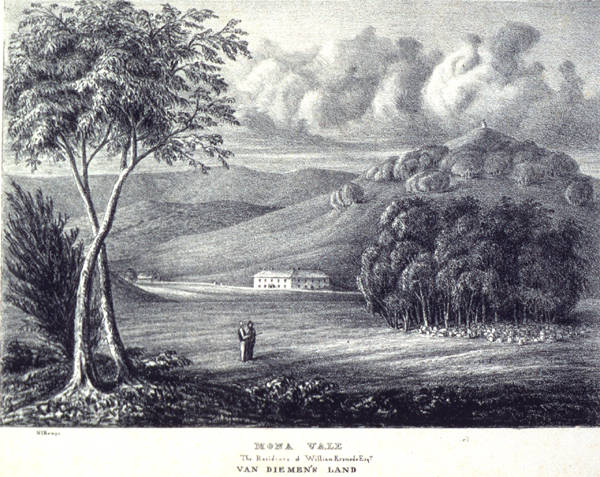 |
 |
|
Midlands Landowners
Midlands Landowners, the 'Midlands Gentry' or 'Shepherd Kings', comprised the families who owned large properties in the Midlands, between Kempton and Launceston, from Ouse to Fingal. Most acquired land by grant before 1831, by which time the best pastoral land was occupied, and most were emigrants of modest capital – merchants, retired officers, professional men, yeomen and a few ex-convicts. As wool became a staple money-earner in Tasmania from the 1820s, they prospered, building fine homes and employing many people. Often they became community leaders in local government, church affairs and philanthropic activity, and they provided most members of parliament for the area, though without forming a cohesive group. They often ran their properties paternally, providing housing, schools and church services for their employees. There were ranks within the group: some prosperous families of convict descent were never really accepted, nor were some of lesser social origins. Many families intermarried, and they rose and fell depending on their energy, capability of wives, number of children, ability with finance, susceptibility to alcohol and general good or bad fortune. Some families died out, others prospered from small beginnings. From outside they were perceived as a lordly network, running Tasmania. These landowners' economic power waned from the 1880s when other industries such as mining developed, though their social standing remained dominant until the 1960s and 1970s, when wool prices declined and social values changed. Some members achieved success in other areas, such as Cyril Cameron, John Gellibrand and John Hutton Bisdee (the Army), and Simon Youl (tennis). Many farms changed hands over the years, but in 2004 some families were still farming properties owned by their ancestors in the early nineteenth century. Some stately homes were opened to visitors. Prominent names have been Agnew, Allison, Archer, Bethune, Bisdee, Brock, Butler, Cameron, Clarke, Clerk, Dowling, Dumaresq, Edgell, Field, Foster, Gatenby, Gellibrand, Gibson, Headlam, Horne, Keach, Kermode, Leake, Legge, Lord, MacKinnon, Macleod, Nicholas, O'Connor, Page, Parramore, Parsons, Pitt, Reid, Shoobridge, Taylor and Youl. Further reading: H Reynolds, ' “Men of honour and deservedly good repute”', Australian Journal of Politics and History 15, 1969. Alison Alexander |
Copyright 2006, Centre for Tasmanian Historical Studies |
